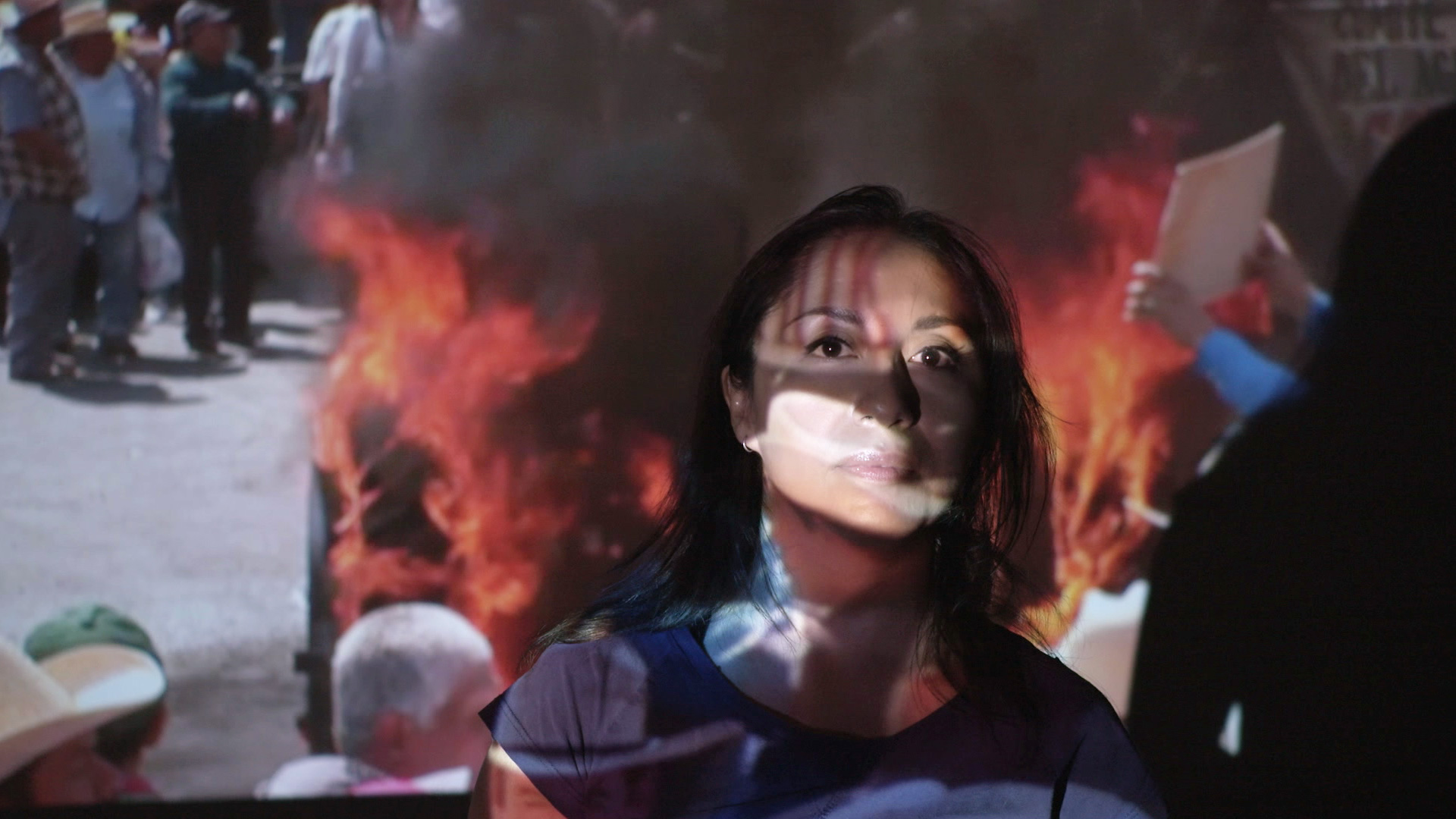
For the last two decades, the Mexico City-born artist Minerva Cuevas has helmed the activist group Mejor Vida Corp, or The Better Life Corporation. It stages artistic and political interventions poking fun at, and in some cases interfering with, the status quo of economic life.
Much of the artist’s early work took the form of guerrilla interference, altering the bar code lines so that shoppers were paying less for certain items at the supermarket, or distributing small gifts on the New York Subway as if part of a larger, MTA-sanctioned project. These initiatives, which began as what the artist describes as “micro sabotage,” turned into an art practice. “This little disturbance in the system—it’s finding the gap in the bureaucratic process,” she says.
In an exclusive interview filmed as part of Art21’s Art in the Twenty-First Century series, Cuevas explains the genesis of her political activism, which developed organically as political crises mounted in Mexico, including the forced abduction of 43 students from the Ayotzinapa Rural Teachers’ College in 2014. Part of the Better Life Corporation was a show called “Feast and Famine,” a commentary on capitalism as a “cannibalistic process” in which “the exploitation of all the resources in the planet” represents feast, even as so many societies face starvation.
Production still from the “Art in the Twenty-First Century” Season 8 episode, “Mexico City,” 2016. © Art21, Inc. 2016.
The work from “Feast and Famine” is on view as part of the group show “Witch Hunt,” a collaboration between the Hammer Museum and the Institute of Contemporary Art, Los Angeles. The exhibition is part of the nationwide Feminist Art Coalition initiative, meant to address and evaluate the legacies of feminist discourse in art.
The work in the show began as an investigation into cacao, from its earliest use as currency in pre-Hispanic Mexico to its contemporary status as a symbol of global trade, commerce, and corporate exploitation. One aspect of the exhibition features chocolate dripping from the ceiling every 3.6 seconds. “Every time the chocolate drips, one person dies of starvation in the world,” the artist says, “It’s a terrible fact, but somehow it’s translated into this chocolate sculpture.”
Watch the video, which originally appeared as part of Art21’s Art in the Twenty-First Century series, below. “Witch Hunt” is on view at the Institute of Contemporary Art, Los Angeles, through January 9, 2022.
This is an installment of “Art on Video,” a collaboration between Artnet News and Art21 that brings you clips of newsmaking artists. A new series of the nonprofit Art21’s flagship series Art in the Twenty-First Century is available now on PBS. Catch all episodes of other series, like New York Close Up and Extended Play, and learn about the organization’s educational programs at Art21.org.